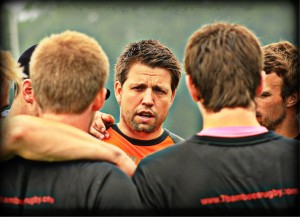 After introducing the concept “Holistic Athlete Development” (HAD) in the first part of this series, I would like to go into more depth and underline the idea from a practical aspect in this month’s post.
After introducing the concept “Holistic Athlete Development” (HAD) in the first part of this series, I would like to go into more depth and underline the idea from a practical aspect in this month’s post.
But before digging a bit deeper, I would like to briefly recap the key points from the first blog.
The core idea behind HAD is to put a stronger emphasis on implementing and developing a range of skills, which athletes can apply off and on the rugby pitch.
This theory is based on the concept that athlete development should focus beyond pure training and competition environment (TCE) based skills.
Athletes that have an additional skill-set available have several benefits. For example, it prepares the athlete to enter new career paths in case an athletic career fails or alongside a current sport career. In addition, implementing new skills can also have a refreshing effect on the mind and body.
But the main argument and key objective for HAD should always be to create some kind of skill transfer – managing to implement skills gained outside the TCE back into the TCE. In the ideal case, the athlete develops not just a broader skill-set, but is also able to combine new skills with established skills.
How to apply a Holistic Athlete Development approach
I explored why this concept is useful in Part 1 of this series. The next question to explore is how the idea can be applied most efficiently.
As I mentioned before, I’m certain that coaches who work with athletes on a regular basis already apply this philosophy to some degree, but maybe are not always fully aware of it.
To simplify, HAD always takes place if we coach skills that are not directly concerned with one particular sport. Thereby, we differentiate between two sorts of skill categories, sport related skills and non-sport related skills.
Sport-Related Skills
Within sport-related skills, we consider any form of skills which are related to a different sport than rugby. This includes coaching a completely new sport.
Personally, as a rugby coach, I like to let players try team sports like basketball and football or tennis and rock climbing; as well as individual sports.
Alternatively, it can also relate to coaching only a certain movement pattern from a different sport, such as a netball pass or a football throw-in. The real beauty of trying new and different sports and/or sport movements is to figure out what kind of possibilities are available and then to identify how they can help the athlete (and the coach) to become better in their respective sport.
Non-Sport Related Skills
The concept of non-sport related skills is a bit trickier. It requires even more creativity and also some courage to introduce new ideas.
It is certainly not easy to implement programmes for athletes that are not directly related to a sport without seeing a direct beneficial effect. However, a popular example is to actively involve players in management and coaching processes.
In this case, the coach often needs to hand over the authority and let athletes take control of organisational tasks, such as setting up and running meetings, planning an away trip or holding a seminar on a specific topic.
This is certainly not easy – especially for coaches who are more comfortable with autocratic coaching styles. However, there is no doubt, that sharing authorities is the first step towards a concept like HAD. The learning effect, often for both athletes and coaches, can be significant. The athlete often learns valuable skills such as taking responsibility, something which is vital on a rugby field.
Conclusion
The whole process requires a lot of practice, depending on the level of experience, and can be frustrating at times.
We have to consider, within this approach, that we often coach skills that are completely new to all members of the team. The most difficult element in this process, is to figure out what suits the person I coach best. Therefore, no matter what ideas you’ll eventually introduce and apply, it is most important that the athlete and coach develop together during this process.
All ideas mentioned in these blogs are my own, unless otherwise stated. Please feel free to discuss or comment on anything below. I believe that a lively discussion can be extremely helpful in improving the provided concepts.








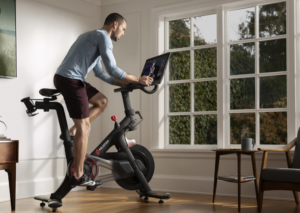 When most people hear the word “Peloton” they think of an expensive black bike with shiny red buttons and that controversial commercial where the husband gifted his wife a Peloton for Christmas.
When most people hear the word “Peloton” they think of an expensive black bike with shiny red buttons and that controversial commercial where the husband gifted his wife a Peloton for Christmas.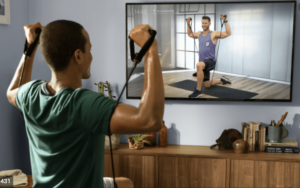 If the app interests you, Peloton is currently offering a 30 day FREE TRIAL, so why not give it a try? Check it out
If the app interests you, Peloton is currently offering a 30 day FREE TRIAL, so why not give it a try? Check it out 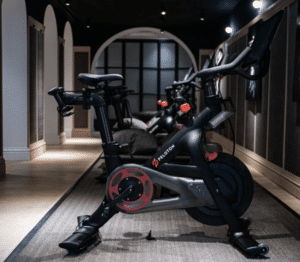
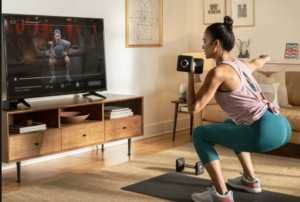
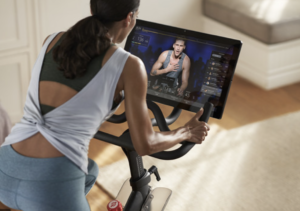 This article would not be complete, however, if we did not acknowledge some of the delivery issues that have been plaguing Peloton over the last year. Most of the delivery issues seem to affect U.S. deliveries, however, the UK deliveries have been affected as well.
This article would not be complete, however, if we did not acknowledge some of the delivery issues that have been plaguing Peloton over the last year. Most of the delivery issues seem to affect U.S. deliveries, however, the UK deliveries have been affected as well.







